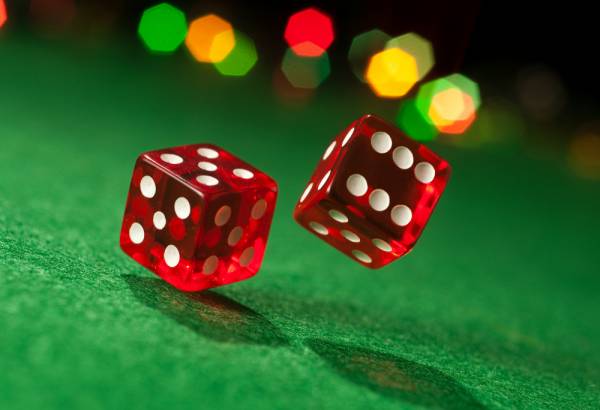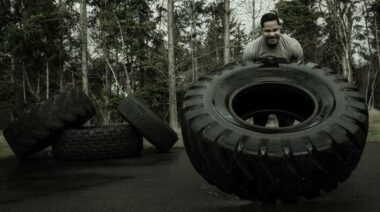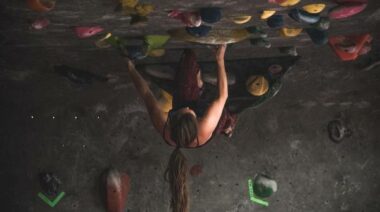When my friend and I first went to see The Lord of the Rings I thought we were going to have a great time. To say that he’s a fanatic fan of J.R.R. Tolkien’s books would be a massive understatement. Boy, was I wrong! While I had a great time, he hated the movie – and he made that point abundantly clear.
After we left, we went out for a beer and I asked him, “Why didn’t you like it? I thought it was AWESOME!”
It wasn’t at all like the book,” he said, “I thought Peter Jackson (the director) was trying to be loyal to the books. He wasn’t.”
“What, are you kidding?” I responded with surprise. “The movie was A LOT like the book. It’s a movie; you’ve got to give it some wiggle-room. Of course it isn’t going to be exact.”
“I guess so. I just know what it’s supposed to be like, and it wasn’t that.”
He believed that the image he had in his mind was the “true” and “honest” representation of what The Lord of the Rings was “supposed” to be. Given that there is no way that the filmmakers could have created the film exactly the way he envisioned it, he was bound to be disappointed.
Funny enough, now that he’s seen it a few more times (about 12!) he loves the movies and can’t wait for the new version of The Hobbit to come out. Once he gave up on the idea that the movie had to conform to the way he heard the story the first time (in the book) then he was able to see the movie on its own terms. Once he did that, he recognized how (totally) awesome it was.
In the mathematical field of Game Theory the response my friend had is an example of the “Status Quo Bias.”
We all suffer from it. And, it has great implications in sports psychology, your ability to learn complex movements like the snatch or kettlebell swing, and whether or not you’re getting stronger in the gym.
If you don’t tackle it, you will never improve at the rate that you want to.
Understanding the Status Quo Bias
“To do nothing is within the power of all men.” — Samuel Johnson
The Status Quo Bias is an exaggerated preference for the way things are. The disadvantage of change often appears to be greater than the advantage of change.
 My friend valued the original version in his mind of The Lord of the Rings greater than he valued the movie version. It doesn’t matter that he wasn’t going to “lose” something by liking the movie, in his brain he set up a direct comparison and made an economic decision – the movie is less valuable than the thing I know, the book.
My friend valued the original version in his mind of The Lord of the Rings greater than he valued the movie version. It doesn’t matter that he wasn’t going to “lose” something by liking the movie, in his brain he set up a direct comparison and made an economic decision – the movie is less valuable than the thing I know, the book.
We all do this constantly. I have preferred coffee shops, for instance, that I go to because … I’ve always gone to them. Some athletes have favorite socks they wear in competition because they’ve always worn them.
In Game Theory, the Status Quo Bias is closely related to what is called The Endowment Effect – where people demand more to give up something than they would be willing to acquire it – which together are foundational to the idea of Loss Aversion.
Loss Aversion is a person’s general tendency to be more afraid of loss than interested in gain.
For example most people will feel deeper psychological pain from losing a game of tennis than they will feel pleasure from winning the same game. In fact, the feeling of displeasure from a loss is often DOUBLE the rate of pleasure from a win.
What these all add up to is this: When you make one option the status quo a person will naturally prefer it regardless of whether it is the better option or not.
Can you see the problem?
Status Quo Bias in the Gym
Whenever I tell a woman on the street that she should spend more time strength training than doing cardio I get a crazed look. After all, she’s been hitting the cardio machines hard for years and hasn’t lifted weights a day in her life. It is what she knows. It doesn’t matter how much scientific evidence I put in front of her, she’ll need to see a remarkable amount of social proof (testimonials from people who have done it) to make the switch.
Had she started out in her life lifting weights as her default form of exercise then things would be different. Unfortunately for her, we still live in a society where the default for most women is to spend 10 hours a day on the treadmill watching Oprah while avoiding lifting anything heavy for fear of turning into a man.
Bottom line, if you want to make the fastest progress possible it is imperative that you seek out the best training programs, exercises, diets, coaches, gyms, training partners, etc.
But, this puts you in a bind. You have to try lots of new things to make sure you find what is optimal for YOU. However, you can’t decide what is “best” if you are always comparing everything to your default, which you artificially value higher than it should be valued.
Putting it All Together, OR, Making You Buff and Awesome
Just because the routine you are on is the routine you are on doesn’t make it the best thing since sliced bread.
 Your homework is to hunt down a new routine and give it the good college try for at least 4 to 6 weeks. Then…repeat! Only through honest experimentation will you be able to find out what works best for you.
Your homework is to hunt down a new routine and give it the good college try for at least 4 to 6 weeks. Then…repeat! Only through honest experimentation will you be able to find out what works best for you.
WARNING: It is too easy to do what I call “fake trying”.
Fake Trying is when you start to try something out and then make an immediate knee-jerk reaction that you don’t like it. In nearly every case, the reason you don’t like something at first is because you are suffering from the Status Quo Bias.
You can’t possibly know if a new routine is working unless you are on it for a minimum of 3 weeks. Beyond the physical time-lag problem, it simply takes time to get past the initial effects of the Status Quo Bias psychologically.
You have to FORCE yourself to see the new thing – the results from a new program – in an honest light. My friend had to watch The Lord of the Rings three times before he was able to get past his initial reservations and see the movie on its own terms.
Give yourself the same opportunity with new routines in the gym. At first, it will be different than what you are used to, and therefore you’ll not like it and will be convinced that it isn’t working. But, if you ride it out, then you might find something new that works better than what you’ve been doing.






